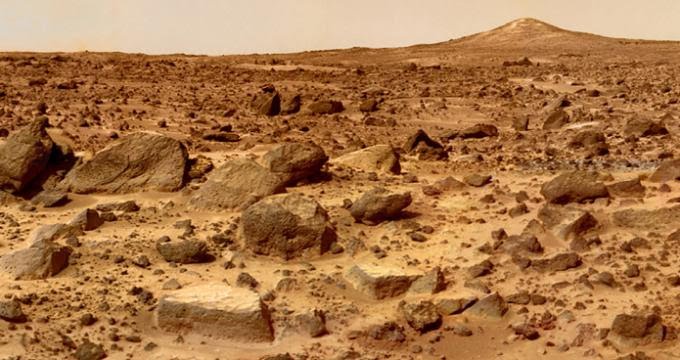Mars Rovers Should Focus On Pasta-Like Rocks As They Might Be Produced By Alien Life

As reported in a study published in the Astrobiology scientific journal, future Mars rovers should focus on pasta-like rocks on the Red Planet, as they might have been produced by alien life on Mars. More specifically, according to the scientist behind the research, bacteria might have created this kind of rocks.
Here on Earth, different species of ancient bacteria can proliferate in harsh conditions on our planet, which are similar to those Mars present today. Sulfurihydrogenibium yellowstonense, as the bacteria species is known, evolved about 2 billion years ago when the Great Oxygenation Event was only at the beginning.
These bacteria use sulfur and carbon dioxide as energy, and they can live in extreme heat and low oxygen conditions. Even more, these microorganisms can resist powerful ultraviolet radiations. Accordingly, scientists believe that similar bacteria can proliferate on Mars and produce pasta-like rocks since these microorganisms accelerate crystallization of calcium carbonate rock here on Earth.
Pasta-like rocks on Mars might be produced by alien life
“It has an unusual name, Sulfurihydrogenibium yellowstonense. We just call it Sulfuri… Taken together, these traits make it a prime candidate for colonizing Mars and other planets,” stated Bruce Fouke from the Carl R. Woese Institute for Genomic Biology (IGB) at the University of Illinois in an interview.
“[These bacteria] form tightly wound cables that wave like a flag that is fixed on one end. The waving cables keep other microbes from attaching. Sulfuri also defends itself by oozing a slippery mucus. These Sulfuri cables look amazingly like fettuccine pasta, while further downstream they look more like capellini pasta,” Fouke added.
According to the new study, future Mars rover should focus on those pasta-like rocks. Upcoming NASA’s Mars 2020 rover will take samples of Martian soils and rocks. If it reaches the areas where ancient hot springs once existed on the Red Planet, Mars 2020 rover could indeed find traces of alien life on Mars, even though it would be only formed from bacteria.
0 comments